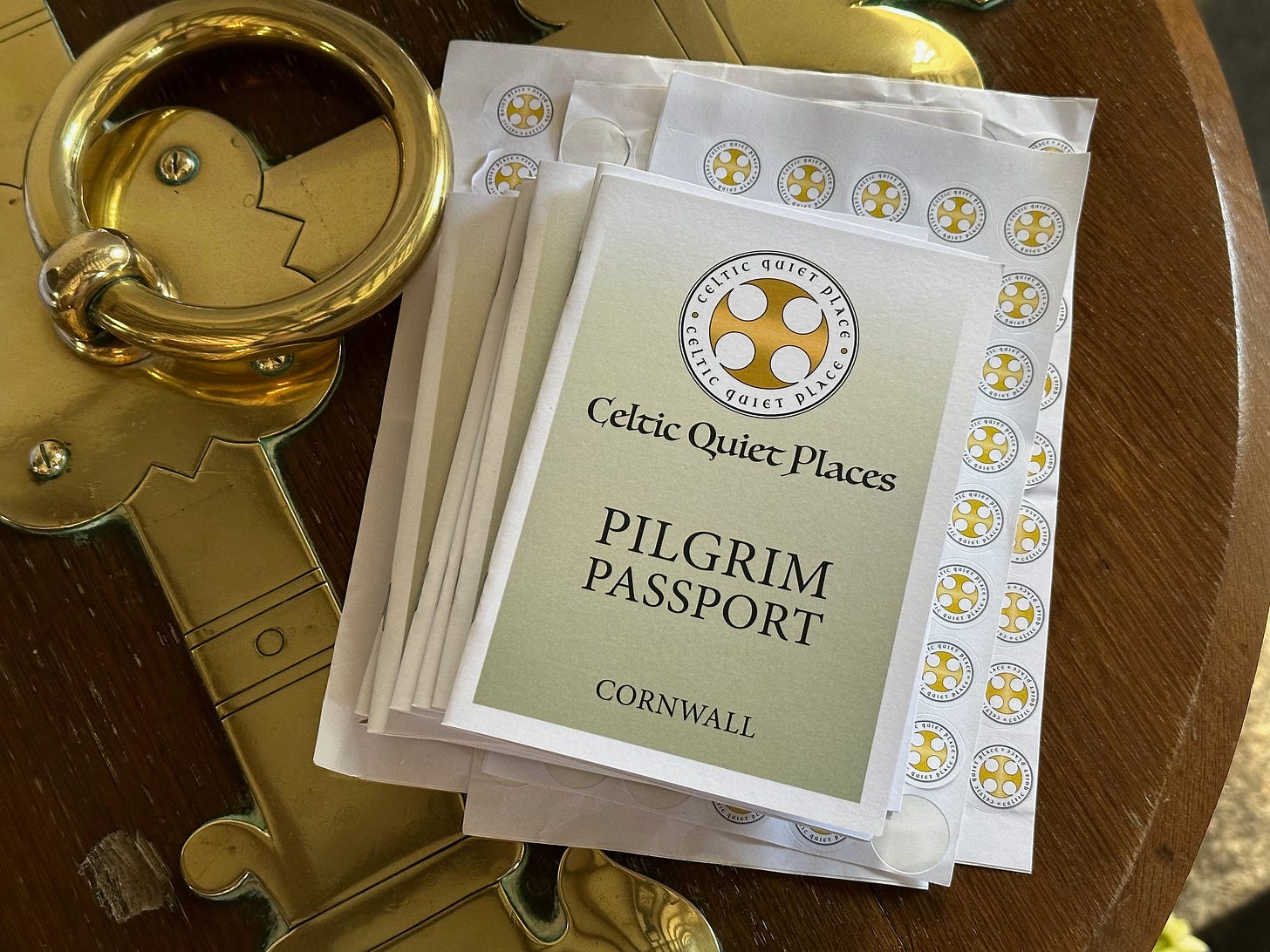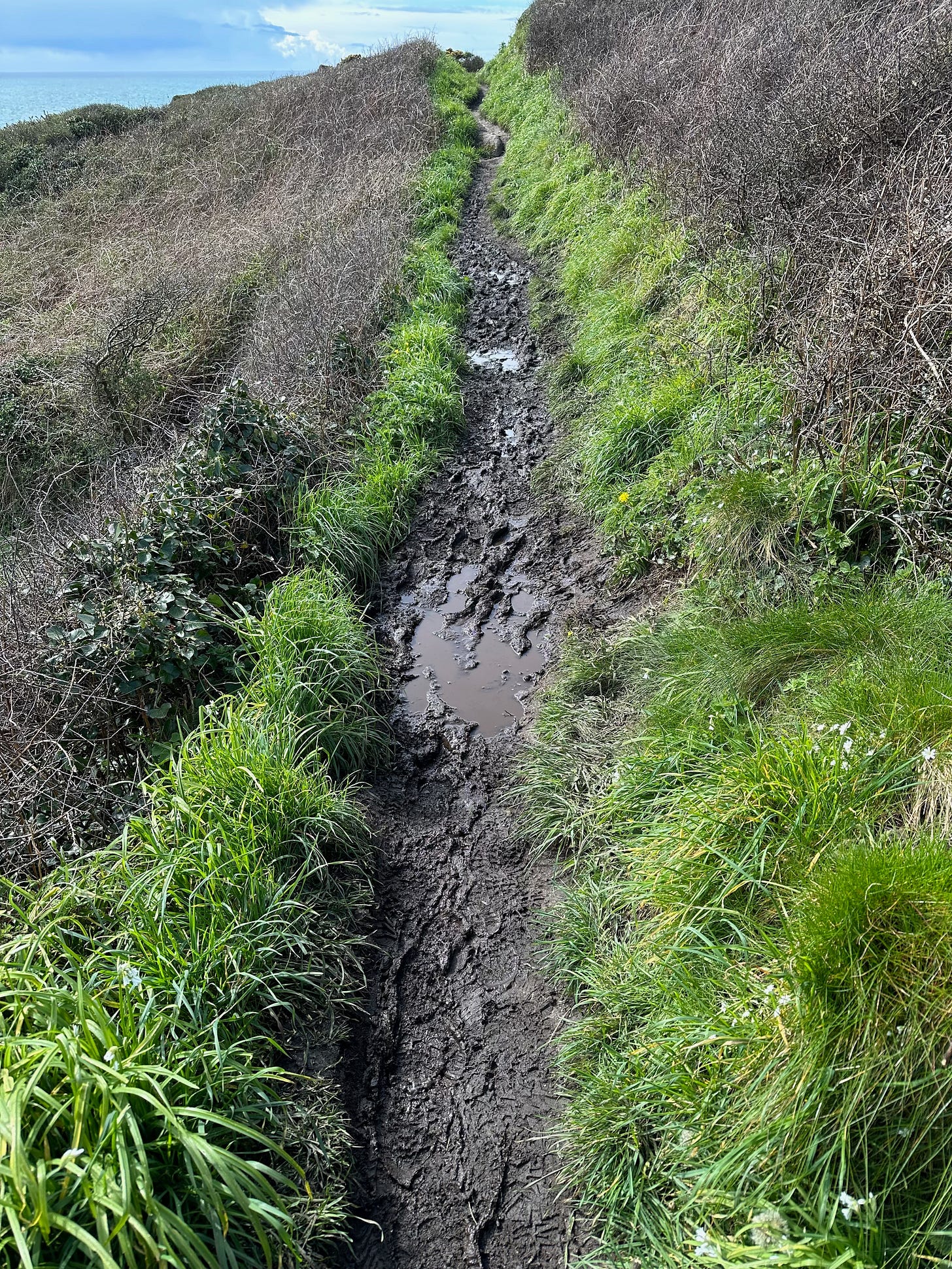I was going to begin this week’s patch with a few thoughts about my new, first ever hearing aids (thank you very much NHS), but I can’t hear myself think for what sounds like dozens of crisp packets being opened by my left ear and a biblically sized flock of twittering sparrows by my right. I had no idea there were so many birds in our front room. Nor people eating crisps come to that. Who are they? How did they get in there? And how and why do they hide as soon as I enter the room?
I was advised that I must wear my earpieces all the time to make sure I get used to them, so I hope I’m not cheating by taking them out at night.
But rather than go on about my hearing aids, I thought it would be good to big up today’s (Saturday’s) sunshine and celebrate the end of three months of rain. I have longed to see my very own patch of blue sky overhead again and I’m delighted that there was more than enough today to make a naval quantity of sailor’s trousers.
But please could someone ask those jolly jack tars to stop eating potato snacks?
Holy Sticker Books!
On one of the very wet windy days while we were in Cornwall I went on a research visit to St Levan Church, Porthcurno, where I was lucky enough to find the organist, practising for the next Sunday service.
On the font was a sticker book and stickers for Cornwall’s Celtic Quiet Places, a new project to celebrate Cornwall’s Celtic Christian heritage.
‘Some of these places of quiet contemplation have been enriching our lives for the best part of two millennia.’ says Reverend Canon Pat Robson who is the driving force behind the initiative. ‘I realised many years ago that despite there being over 300 Cornish Celtic Churches, not to mention the towns and villages named after Celtic saints, Cornwall did little to promote or celebrate its Celtic presence in the world. If you want to have any kind of intentional Celtic experience, you have to go all the way to Lindisfarne or Iona.’
Whether or not Sir Ronald Hutton, the eminent (and my favourite) historian would agree with her would be worth knowing. He’s currently Professor of Divinity at Gresham College giving a brilliant series of lectures on Magic, the Supernatural, and the Lost Gods of Europe.
Gresham College was established in 1597 and is a wonderful organisation promoting free lectures by experts on all kinds of subjects, with their video recordings and transcripts also freely available - although the college always appreciates donations.
Squudge
The weather was so inclement in Cornwall during Easter week, that I decided a new vocabulary was need to define and describe the quaggy conditions of the footpaths, full of water and mud.
So we have surface squudge, a kind of squidgy sludge, and squag – quaggy mud that doesn’t release your boots when you step into it!
A visit to the Leach pottery at St Ives
‘Pots, like all other forms of art, are human expressions: pleasure, pain or indifference before them depends upon their natures, and their natures are inevitably projections of the minds of their creators.’ So said Bernard Leach, the famous artist and ceramicist who founded The Leach Pottery in St Ives.
In one of the archive films shown in the Museum, I loved how he talked about the ‘way the clay sings on the wheel’, (which is probably very unlike the way squudge clings to the heel.)
9.5mm
Helping one of my brothers sort through boxes of my father’s old films we found the catalogue he had marked up with the 9.5mm films he wanted to show his local film club, when aged aged 15 or 16. An entrepreneurial lad, he had shown home-made 9.5mm films in the lunch hour at Queen Mary’s, Walsall, the secondary school he cycled to every day.
My brother Andrew found a fine memorial to 9.5mm on YouTube with a commentary by Michael Bentine (of Goon Show fame).
Narrativity – is it just a story?
I’m very much enjoying being a memeber of a small discussion group that meets once a month. This month’s subject was narrativity. Is narrativity – are narratives – a pan human phenomenon or are some people anarrational – they just don’t regard their lives as narrative? Perhaps they see it as episodic or non-linear, but some people claim to be non-narrative in the way others claim to be, for example, non-binary.
This got me thinking about what a non-narrative would feel like and it seemed to me that narrative and non-narrative might be differentiated in the way poetry can be, between narrative and lyrical. I felt this differentiation began to gain validity when the discussion veered towards therapy and psychoanalysis. For some of the group psychoanalysis automatically means narrative, and the generation of a new narrative for the individual life to replace an unworkable one.
I feel, based on my own experience, that whilst narratives are generated in psychoanalysis that’s not its main function, which seems to me more about acceptance and the analysis of narrative to reveal psychological truth (that I accept may be expressed as a narrative but can also be a feeling, an awakening, an epiphany.
So I would argue that at root as a process, therapy is anarrational. And nowhere is this more obvious than in dreams.
Dreams are chaotic, multi-layered with multiple superimpositions and undercurrents. They are lyrical . Only as we wake and try to remember a dream do we select the elements or read the sequence in a narrative way to make sense of it. But often on waking my dreams are like paint thrown against a wall. A veritable splurge of images and a concoction of material from which I may have trouble dragging any narrative, so that I’m left with just one or two striking images in no particular order. An imagist poem in the mind.
The creation of a narrative from the dream is deeply satisfying because it’s a creative process, it reads unconscious into conscious. But the core dream is a lyric mix.
(If you would like to read more on this subject Against Narrativity by Galen Strawson was published in Ratio (new series) XVII 4 December 2004.)
Garden Variety Nazis
https://magazine.newstatesman.com/2024/03/30/garden-variety-nazis/content.html
An article in the New Statesman by Gavin Jacobson, with the title above, shows ‘how The Zone of Interest unearths the horticultural roots of the Shoah.’
‘In a series of letters written between 1771 and 1773, Jean-Jacques Rousseau warned his friend, Madame Étienne Delessert, against the practice of horticulture. Commonly thought of as a philosopher, Rousseau’s abiding interests were music and, especially in the declining years of his life, botany. If the study of plants was respectable and salutary, the landscaping of gardens, he thought, where the imprint of the gardener’s hand deforms nature, was a grotesque enterprise performed by monsters.
‘The monsters in Jonathan Glazer’s The Zone of Interest, Rudolf Höss and his wife Hedwig, are gardeners, and large parts of the film take place in their manicured patch next to Auschwitz. After his arrest in 1946, the commandant of the camp described the grounds of the family home as his wife’s “flower paradise”, and there is a scene in the film in which Hedwig gives her mother a tour, naming each plant and vegetable as they amble across a space of rigid utilitarian design that Rousseau would have considered a horticultural monstrosity, with fixed pathways, planted greenery, sharply demarcated lawns, a large green house, and symmetrical flowerbeds tended by camp prisoners.’
Evil does not exist
A nice quote in The Guardian from the Oscar winning director Ryûsuke Hamaguchi about his new film Evil does not exist: ‘The world is full of mystery and absurdity.’
And nothing demonstrates that better than the urban myth (or is it?) that children’s toys were designed and used as sex toys during the Soviet era.
Do the pictures have a narrative? Are ‘their natures inevitably projections of the minds of their creators’ as Sir Bernard Leach might have said.
Music
Sept chansons de Clement Marot Op. 15 Performed by Marie-Nicole Lemieux
George Enescu (1881-1955), known in France as Georges Enesco, was a composer, violinist, conductor, and teacher and is regarded as one of the greatest musicians in Romanian history. Pablo Casals described Enescu as ‘the greatest musical phenomenon since Mozart’.
TV
The producers don’t yet know if ITV are going to commission another series of Passenger?? Oh, come on, ITV! You can’t seriously leave us up in the air like that with no answers. Described as Stranger Things meets Happy Valley, without another series it will be more like Sooty & Sweep meet The Invisible man!
Have a great week with lots of blue sky – thinking or otherwise.












